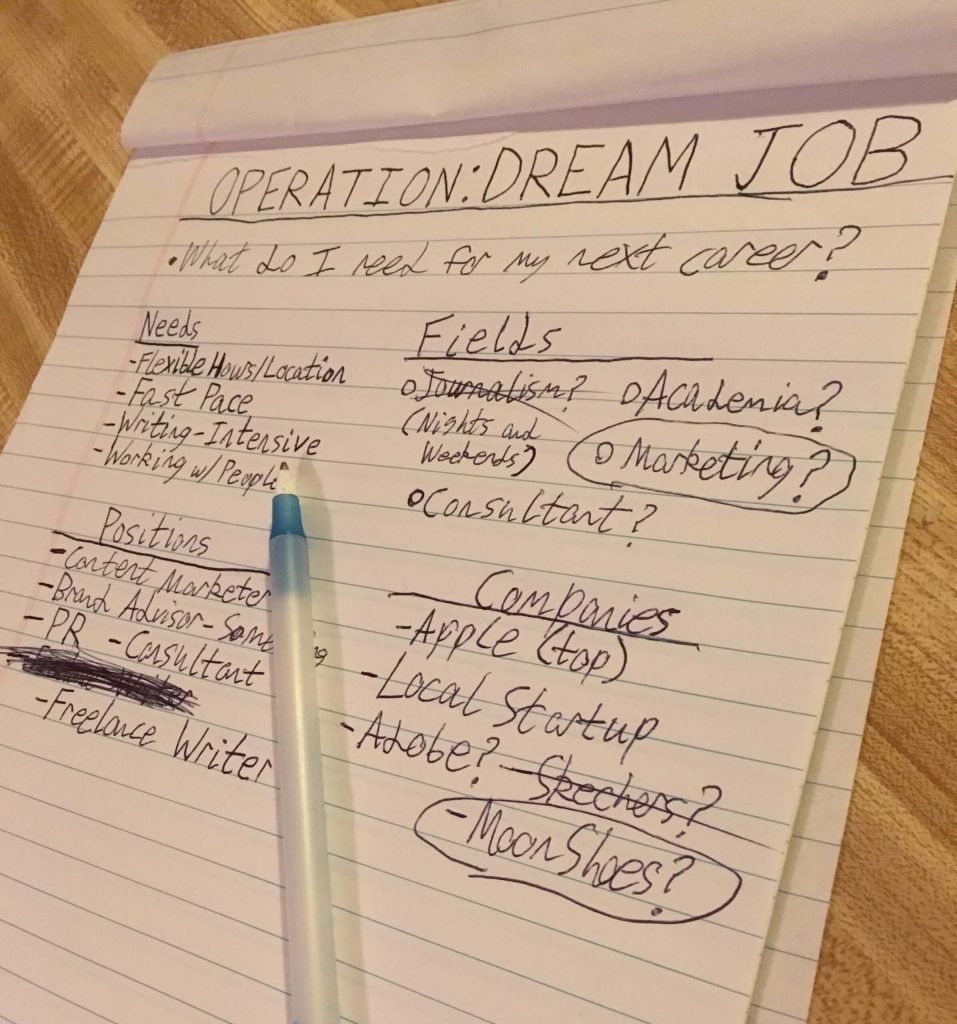Career changers: listen up! Want to move to a new industry but feel hesitant about going in blind? Informational interviews just might be your ticket to a new job. Read on to find out what they’re for, how they work, and how to set one up.
By: Elyse Villanueva | Social Media Manager at Let’s Eat, Grandma
Are you hitting a dead end with your job search? Want to change careers but not sure how to start?
I hate to tell you this, but your friend who’s in a completely different field than you won’t be of much help other than maybe a sarcastic comment (see below).
You need real advice. That’s why we’re here with this guide to getting the best advice possible through informational interviews.
So, what are informational interviews?
Informational interviews are casual business meetings you can have with someone who works in a job/field you’re interested in and can help you grow professionally.
It’s essentially like research for your career development from a first-hand source (Imagine a job interview with none of the pressure!). They’re extremely helpful in determining whether or not a different career or position would be a good fit for you.
What are some of the benefits of informational interviews?
- Mapping New Territory: Whether you’re vetting potential career paths in college, or changing to a new field later on, this is the only surefire method to learn what a new industry is really like.
- The Hidden Job Market: Find out about career paths and job openings you didn’t know existed.
- A Day in the Life: Learn the day-to-day realities of working in a specific company or position.
- Insider Tips: Get a leg up on the competition! Learn from first-hand experience about what it takes to land a job in a certain company/industry.
- Networking: Begin a professional relationship and expand your network of new industry contacts that may help you in the future.
- This connection could even be the reason you land the job! Employers are more likely to hire a candidate that is known and trusted by people they know and trust.
6 Steps to an Awesome Informational Interview:

1. Do your research and identify the right people to interview!
Start by making a list of subfields, companies, and/or positions that you are interested in.
Do some research on your desired career field and professionals in your area. You can use tools such as LinkedIn, alumni associations, or Meetup to find the right people to interview.
You can even pursue contacts you already know such as family, friends, professors, past employers, etc. Even if your existing contacts aren’t in your field, they can lead you to someone who is.
2. Prepare interview questions
It’s a good idea to prepare interview questions before reaching out to the person in case the only time that they’re able to talk is over the phone right when you call them.
Prepare to briefly introduce yourself, your professional interests, and goals. This not only gives context to the interviewee, but also gives you a chance to make an impression.
Plan open-ended questions that are directly related to your career field and understanding what you want to get out of the interview will guide your questions.
We’ve listed some quick examples below (A full list of great questions is available here):
- “What is the most rewarding thing about working in this industry? The most challenging?”
- “My background is in (insert field)—how do you think I can best leverage my previous experience for this field?”
- “What is a typical day (week) like for you?”
3. Reach out through email, LinkedIn, or a phone call in a clear and concise manner.
Start by hooking them in by explaining you are reaching out to them specifically (Do you admire their work or career path?). Making communication more personalized will increase your chances of success.
- Mention how you got their name. This will avoid any confusion on their part.
- Don’t beat around the bush. Get straight to why you are reaching out and the action you want them to take. Emphasize that this isn’t about getting a job, but rather for professional development.
- Be specific about your request. let them know what kind of questions they will be expecting to answer (i.e., questions about the company, their field, or your job search)
- Offer your availability and relay that this interview will only take 15-30 minutes of their time. Offer to meet at their office or any place of convenience for them.
- Are they not replying? Don’t take it personally – maybe your request was unclear or they got busy! If you haven’t heard back in a week, send another email and emphasize that it would be very meaningful for you and it wouldn’t take that long.
4. Conduct a stellar interview!
Arrive at the agreed meeting place “dressed for success” and on time (that means 5-10 minutes early, at least!)
- “Omg, what do I wear??” Look at their company’s website and mirror the culture of the office. For example, you might want to dress more formal going into a law office than going into a tech start-up.
A good way to get the conversation going is by first asking about their work experience and current responsibilities.
Bring your list of questions and a notepad for taking notes. Write down important advice (they will love it if you do this!) but remember to be present and make eye contact.
5. Tap into their network
As you wrap up the interview, ask for the names of a few other people who would be good to talk to for more advice and different perspectives.
6. Follow up
You should send a thank-you note within the next few days to express your gratitude for their time and effort.
- Keep in touch with the person if you feel the informational interview was helpful and went well. You can let them know if you followed up on their advice and how that worked for you. This person could then potentially become a key part of your network.
Get Out There!
You now have all the tools to conduct a stellar informational interview. Be sure to check this list of questions for informational interviews, then get out there and discover the path to your next dream job!
Want to hear first-hand success stories and more tips about informational interviews? In this podcast, Mac Prichard, a seasoned career development professional, gives you everything you need to know about how to rock that informational interview!
For more answers to job search questions, check out the many articles on our Blog or our Career Warrior Podcast.
Better yet — cut out the middle man and sign up now for a FREE phone consultation with one of our business writing experts on our homepage!


